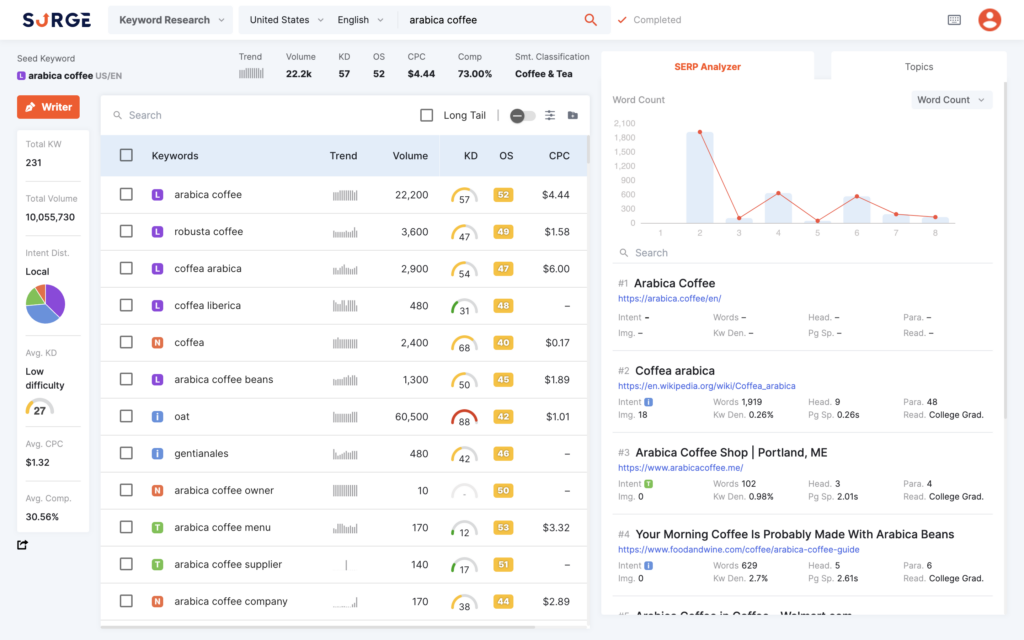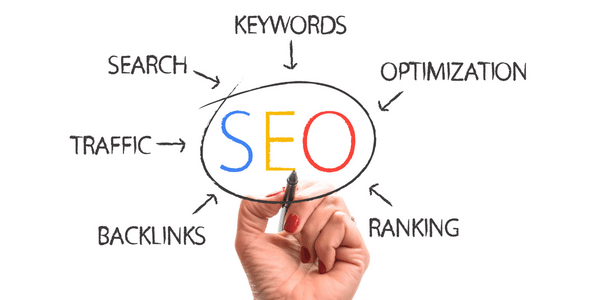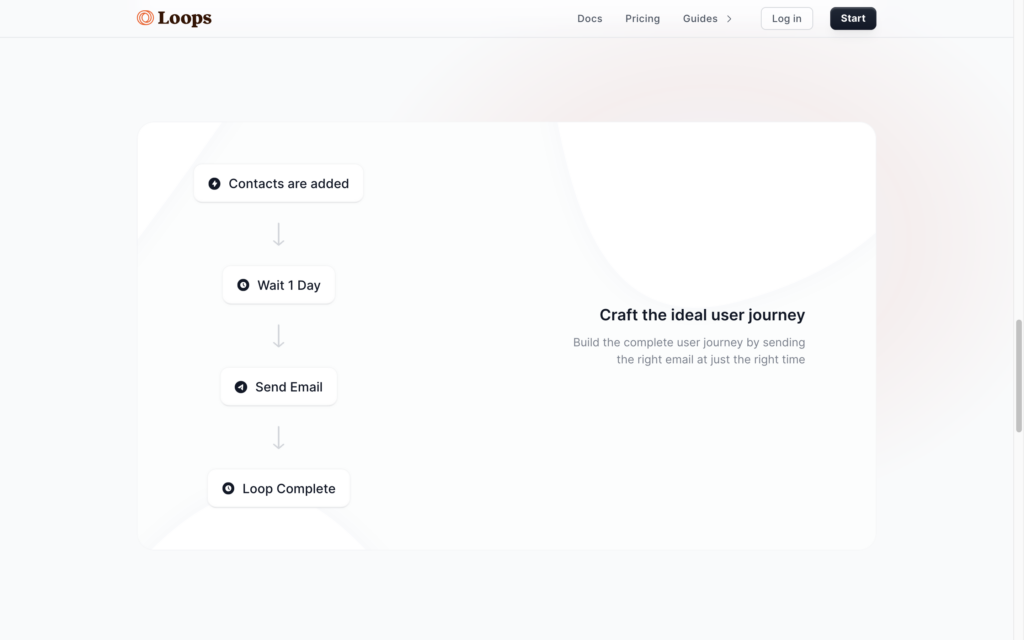
The digital age has transformed how businesses connect with their customers. In this dynamic environment, navigating the ever-expanding world of digital marketing can feel overwhelming.
But fret not! This comprehensive guide will equip you with the essential knowledge to launch and manage successful digital marketing campaigns, even as a complete beginner.
We’ll delve into core concepts, explore various marketing channels, and provide actionable tips to help you establish a strong online presence and achieve your marketing goals.
Table of Contents
Key Takeaways
- Start with the Basics: Understand the foundational concepts of digital marketing to build a strong knowledge base.
- Diversify Your Approach: Explore various types of digital marketing channels to find what works best for your brand.
- Optimize for Search Engines: Implement effective SEO strategies to improve your website’s visibility and attract more organic traffic.
- Harness the Power of Social Media: Master social media marketing tactics to engage with your audience and drive brand awareness.
- Utilize Email Marketing Wisely: Leverage email marketing techniques to nurture leads, build relationships, and drive conversions.
- Embrace the Digital Shift: Recognize the advantages of digital marketing over traditional methods and adapt your strategies accordingly.
The Basics of Digital Marketing
Understanding Your Target Audience
The foundation of any successful digital marketing strategy lies in understanding your target audience. Through in-depth research, you gain valuable insights into who you’re trying to reach. This goes beyond just demographics like age and location. You need to delve into their online behavior: what websites they frequent, which social media platforms they use, and what kind of content resonates with them.
This knowledge is crucial for crafting targeted campaigns that truly connect. By understanding their preferences and behavior, you can create content that addresses their specific needs and interests, leading to higher engagement and ultimately, conversions.
Tailoring Marketing Strategies
Once you understand your target audience, you can tailor your marketing mix to effectively reach them. This includes choosing the most appropriate channels, such as social media, email marketing, or SEO, but also encompasses the specific tactics used within those channels.
By understanding your audience’s preferences and behavior, you can determine whether short-form video content on social media, in-depth blog posts, or targeted email campaigns would be most effective. This ensures you’re not only delivering the right message on the right platform but also using the most suitable tactics within that platform to grab their attention and drive engagement.

Exploring Types of Digital Marketing
Content Marketing
Social media marketing leverages social platforms like Facebook, Instagram, and Twitter to connect with audiences and promote products or services. It involves creating engaging posts, running targeted ads, and interacting with followers to increase brand visibility.
A significant advantage of social media marketing is its ability to reach a vast audience quickly and cost-effectively. Businesses can target specific demographics based on interests, location, and behavior to maximize the impact of their campaigns.
Social Media Marketing
Social media marketing leverages social platforms like Facebook, Instagram, and Twitter to connect with audiences and promote products or services. It involves creating engaging posts, running targeted ads, and interacting with followers to increase brand visibility.
A significant advantage of social media marketing is its ability to reach a vast audience quickly and cost-effectively. Businesses can target specific demographics based on interests, location, and behavior to maximize the impact of their campaigns.
Email Marketing
Email marketing focuses on sending personalized messages directly to a subscriber’s inbox. It is an effective way to nurture leads, promote products, and drive conversions by delivering tailored content to recipients.
An essential aspect of email marketing is its high return on investment (ROI). Compared to other digital marketing strategies, email campaigns often yield impressive results due to their personalized nature and direct communication with the audience.
Identifying the Most Suitable Digital Marketing Types
When choosing digital marketing strategies for your business, it’s crucial to consider your goals and target audience. Conducting thorough research into different digital marketing strategies, understanding current trends, and analyzing competitor tactics can help you determine the most effective approach.
Digital vs. Traditional Marketing
Cost-Effectiveness
Compared to traditional marketing with limited reach and unclear Return on Investment (ROI), digital marketing enables you to target a wider audience at a lower cost. You can adjust your budget in real-time based on campaign performance, maximizing your ROI.
Measurability
Unlike traditional marketing efforts where results are difficult to quantify, digital campaigns provide measurable data. By utilizing analytics tools, you can track key metrics like website traffic, engagement rates, and conversions, allowing you to accurately assess the success of your campaigns and optimize them for better results.

Real-Time Interaction
Digital marketing provides the unique advantage of real-time interaction with your audience. Through social media platforms and email marketing, you can engage with customers instantly. This immediate feedback loop allows for quick adjustments to optimize campaigns.
Global Reach
Unlike traditional marketing that is often limited by geographical boundaries, digital marketing offers a global reach. You have the ability to connect with audiences worldwide through websites, social media, and mobile devices. This expansive reach opens up new opportunities for growth and expansion.
SEO Strategies for Higher Visibility
Keyword Research
Keyword research is essential for optimizing website content and improving search engine visibility. By identifying relevant keywords, you can tailor their content to attract the right audience. Utilize tools like Google Keyword Planner for effective keyword selection.
Implementing keyword research helps in understanding user intent and popular search queries. This knowledge enables you to create targeted content that aligns with what users are searching for online. By incorporating these keywords strategically, websites can rank higher on search engine result pages (SERPs).

On-Page and Off-Page SEO Techniques
On-page SEO involves optimizing individual web pages to improve search engine rankings and drive organic traffic. You should focus on elements like meta tags, headings, and quality content creation to enhance on-page SEO. Optimizing images and improving site speed contribute to a better user experience.
Off-page SEO techniques aim to boost a website’s credibility and authority through external factors. Encouraging social sharing, guest blogging, and influencer collaborations are effective strategies for off-page optimization. By building a strong online presence beyond the website itself, you can increase brand visibility and attract more traffic.
Building Quality Backlinks
Backlinks play a crucial role in SEO by indicating the credibility and relevance of a website. Beginners should prioritize acquiring high-quality backlinks from reputable sources within their industry niche. Guest posting on authoritative websites, participating in industry forums, and leveraging social media platforms are ways to build quality backlinks.
Creating valuable content that other websites want to link to is key to earning quality backlinks naturally. By producing informative blog posts, guides, or infographics, you can attract organic backlinks from other sites seeking valuable resources. Engaging with the digital community and networking with influencers also help in obtaining quality backlinks.
The Advantages of SEO

Search Engine Optimization (SEO) plays a crucial role in any digital marketing strategy. By optimizing your website and content for search engines, you can reap several benefits, including:
Increased Website Visibility
Higher SEO ranking positions your website on search engine result pages (SERPs) for relevant keywords. This translates to a steady flow of qualified leads organically visiting your site who are actively searching for what you offer.
Improved Organic Traffic
Effective SEO attracts qualified leads who are actively searching for products or services you offer, leading to a steady flow of organic traffic to your website.
Enhanced Brand Credibility
Ranking high in search results signifies authority and trustworthiness to search engines and users alike, boosting your brand credibility in the digital landscape.
Targeted Audience Reach
SEO allows you to target specific keywords relevant to your ideal audience. This ensures your website reaches the right people at the right time, maximizing the impact of your marketing efforts.
Building Brand Awareness Effectively
Establishing Brand Authority Through Content
Establishing the brand as an authority in the niche involves showcasing expertise and credibility within the industry. By consistently providing valuable information and insights, you can position yourselves as trusted sources of knowledge. This builds trust with the audience and encourages them to engage with the brand.
Becoming an authority figure requires creating high-quality content that addresses common pain points and offers solutions. Sharing case studies, testimonials, and industry reports further solidifies the brand’s reputation as a leader in the field.
Consistent Communication
Consistently communicating your brand values and unique selling propositions is crucial for building brand awareness. By ensuring that your messaging across all platforms aligns with your brand identity, you establish a strong and memorable presence in the minds of your target audience.
Maintaining a clear and cohesive brand image helps potential customers understand what your brand stands for and why they should choose your products or services over others. This clarity not only attracts new customers but also fosters customer loyalty by creating a sense of trust and reliability.
Influencer Partnerships
Leveraging influencer partnerships and collaborations can be a great way to expand your brand reach rapidly. When influencers endorse your products or services, their followers, who align with your buyer personas, are more likely to take notice and engage with your brand.
Influencers have the power to introduce your brand to a wider audience in an authentic way, making it easier to connect with potential customers who may not have discovered your brand through traditional advertising channels. This strategy can significantly boost brand visibility and attract quality leads.

Monitoring and Engagement
Monitoring brand mentions across various platforms is essential for understanding how your brand is perceived by the audience. Engaging with both positive and negative feedback shows that you value customer opinions and are committed to improving their experience with your brand.
Engagement is key to building brand credibility as it demonstrates transparency and responsiveness. Responding promptly to customer queries, addressing concerns, and acknowledging positive feedback helps create a positive perception of your brand among both existing customers and potential ones.
Crafting Engaging Content
Developing a Tailored Content Strategy
Effective content creation involves tailoring content for specific platforms while also aligning it with broader business objectives. Each social media platform has its unique audience and features, requiring a customized approach. For example, Instagram thrives on visual content, while Twitter favors concise, witty posts.
Moreover, understanding audience preferences through research enables the creation of engaging content, including blog posts and product descriptions. Utilizing diverse formats like visuals and videos, along with compelling storytelling, ensures broader audience engagement. By crafting content that is both platform-specific and strategically aligned, businesses can effectively reach their target audience and achieve their goals.

Interactive Elements
Enhance user experience by including interactive elements like quizzes, polls, and surveys in your content. Encourage interaction through comments sections on blog posts and social media platforms.
Implement user-generated content strategies where customers can share their experiences with your products or services. This fosters a sense of community and trust among users.
Utilizing Analytics
Utilizing social media analytics to track performance and optimize strategies is essential for digital marketing success. By analyzing metrics such as engagement rates, reach, and click-through rates, you can gain valuable insights into what content resonates with their audience.
This data-driven approach allows marketers to make informed decisions and refine their strategies for better results. Tools like Facebook Insights and Google Analytics provide in-depth data that can guide marketing efforts to the next level.
Leveraging Email Marketing Techniques
Building Lists
Creating an email list is crucial for nurturing leads and boosting conversions. By offering valuable content, incentives, or discounts, newbies can entice visitors to subscribe.
Building a quality email list takes time and effort. It’s essential to focus on organic growth rather than buying lists to ensure engagement and compliance with marketing regulations.
Personalizing Campaigns
Personalization is key in increasing open rates and engagement. Tailoring emails based on subscriber preferences, behavior, or demographics can significantly impact campaign success.
Individuals should utilize tools like segmentation, dynamic content, and personalized subject lines to enhance the relevance of their campaigns. A personalized approach fosters stronger connections with subscribers.
Automating Sequences
Automating email sequences streamlines communication with subscribers by delivering timely and relevant content. One can set up automated responses based on subscriber actions or triggers.
Automation tools like autoresponders enable you to send targeted messages at the right time, nurturing leads through the sales funnel effectively. This ensures consistent communication without manual intervention.

Essential Digital Marketing Tips for Beginners
Setting Goals
When starting in digital marketing, setting clear marketing goals is crucial. By defining specific objectives, beginners can focus their efforts effectively. Understanding the target audience personas helps tailor strategies to reach the right people.
Website Optimization
Creating a user-friendly website design is essential for engaging visitors. Ensure the site is optimized for search engines (SEO) to increase visibility online. Mobile optimization is key in today’s digital landscape, catering to the growing number of mobile users.

Strategy Experimentation
You should not be afraid to experiment with different digital marketing strategies. Testing various approaches allows for discovering what works best for the brand. Analyzing results is vital for making informed decisions and continuously improving campaigns.
Final Remarks
By understanding your audience, tailoring your approach, and leveraging the diverse digital marketing tools available, you can create targeted campaigns that resonate with your ideal customers.
As you implement these strategies and analyze the results, you’ll gain valuable insights to continuously refine your approach and achieve long-term success in the ever-growing digital world.
Related Article:
The following article may contain the author’s opinions and interpretations of the subject matter. Any of the products, services, or platforms mentioned is not sponsored or affiliated.
Featured Image courtesy of Freepik
